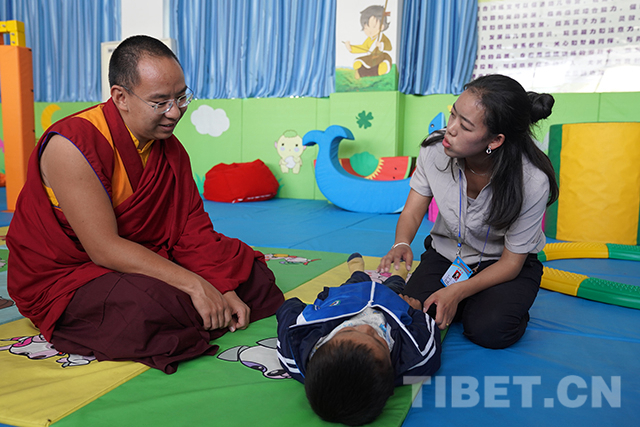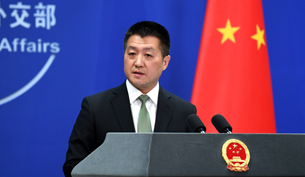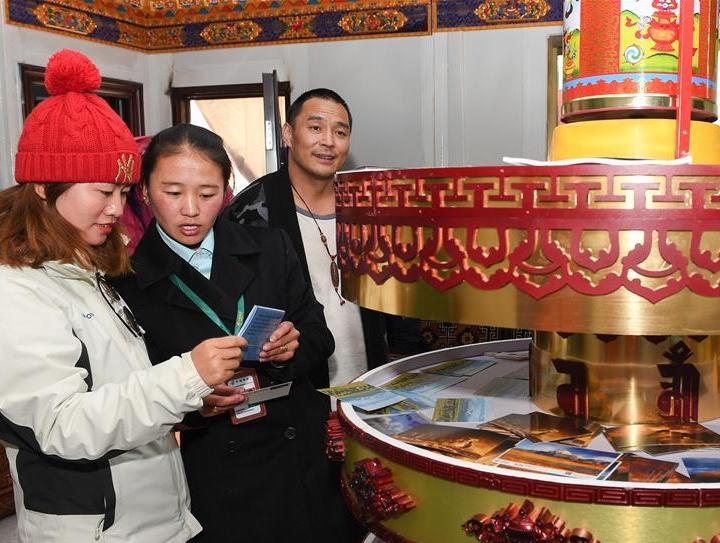BRI helps reform global governance
Chinese President Xi Jinping on Monday told a symposium, marking the fifth anniversary of theBelt and Roadinitiative (BRI), that the China-initiated international development plan has benefitted people in countries that are involved and is building a community with a shared future for humanity.
Xi, who is also general secretary of the Communist Party of China (CPC) Central Committee and chairman of the Central Military Commission, addressed the symposium at the Great Hall of the People in Beijing, the Xinhua News Agency reported on Monday.
Xi also said the BRI has contributed new ideas and plans for reform of the global governance system.
"The broad support for the BRI shows aspiration from countries involved, developing countries in particular, for peace and development," Xi said, noting the BRI is an initiative for economic cooperation, instead of a geopolitical alliance or military league, and it is an open and inclusive process rather than an exclusive bloc or "China club."
"It does not differentiate countries by ideology nor play the zero-sum game. As long as countries are willing to join, they are welcome," Xi said.
Bai Ming, a research fellow at the Chinese Academy of International Trade and Economic Cooperation in Beijing, told the Global Times on Monday that the BRI "has made a key contribution to global governance by providing developing countries with greater influence and self reliance, which is an improvement - not an overthrow - to global governance that has been dominated by developed countries."
In the past, developing countries had to rely on assistance and investment from the West and international organizations, including the World Bank, IMF and WTO, which are also mainly controlled by the West, Bai said.
"Unfortunately, the West just wants developing countries to play the role of cheap raw material providers and factories, which are responsible for manufacturing. Developing countries don't have opportunities to realize industrialization and modernization," Bai said.
Xinhua reported on Monday that over the past five years China's trade in goods with countries along the Belt and Road routes exceeded $5.5 trillion. Chinese direct investment in the non-financial sectors of these countries reached $80 billion, the report said.
China has set up 82 overseas economic and trade cooperation zones in countries along the Belt and Road over the past five years, investing $28.9 billion and creating about 244,000 local jobs. As of May 2018, China had signed 16 free trade agreements with 24 countries and regions, nearly half of which are countries along the Belt and Road routes, Xinhua reported.
Wang Yiwei, director of Renmin University of China's Institute of International Affairs in Beijing, said that China's investments involving countries along the Belt and Road routes are focused on building infrastructure, including railways, ports, bridges and highways, to boost connectivity and transportation in countries that face geographic or economic barriers.
"The lack of connectivity is part of the cause of poverty and backwardness, allowing extremism and instability a chance to grow among undeveloped regions. The BRI is helping the world solve common challenges by boosting inter-connectivity," Wang told the Global Times on Monday.
Bai said that "many developing countries really need these [projects] to realize their own development and industrialization, but the West has not offered them what they needed. The China-proposed BRI is filling the gap left by West-led global governance."
"The BRI is reforming the old system of global governance rather than replacing it," Bai said.
Not a "Marshall plan"
The BRI is not a geopolitical strategy but an international public good offered by China to the world, visiting Chinese State Councilor and Foreign Minister Wang Yi said during his visit to Mongolia on Thursday.
The initiative is not "China's Marshall Plan," Wang Yi said, Xinhua reported on Friday.
Apart from infrastructure and trade, China has also helped boost education and cultural communication along the Belt and Road countries.
Under the initiative, China has set up 81 educational institutions and projects and 35 cultural centers among participating BRI countries. In the first half of 2018, China spent over 270 million yuan (around $39.3 million) onSilk Roadscholarships, Xinhua reported on Monday.
The BRI is benefiting not only developing countries but also European nations have gained ground thanks to the initiative.
The China-Europe freight rail service network, a crucial part of the Belt and Road initiative, has expanded rapidly, reaching 10,000 trips, Xinhua reported.
Newspaper headline: BRI aids global governance
Your Comment
Name E-mailRelated News
-
-
Cohen pleads guilty, implicates Trump in hush-money scheme
MichaelCohen,PresidentDonaldTrump'sformerpersonallawyerandfixer,pleadedguiltyTuesdaytocampaign-financeviolationsandothercharges,sayingTrumpdirectedhimtoarrangethepaymentofhushmoneytopornstarStormyDaniels
-
-
China unveils Chang'e-4 rover to explore Moon's far side
China's moon lander and rover for the Chang'e-4 lunar probe, which is expected to land on the far side of the moon this year, was unveiled Wednesday.
-
-
Report: Pennsylvania priests abused over 1,000 children
Apriestrapeda7-year-oldgirlwhilehewasvisitingherinthehospitalaftershe'dhadhertonsilsremoved.Anotherpriestforceda9-year-oldboyintohavingoralsex,thenrinsedouttheboy'smouthwithholywater.
-
-
'Crazy Rich Asians' draws immigrant parents to the movies
When"CrazyRichAsians"surpassedexpectationsandgrabbedthetopspotattheboxofficeinitsopeningweekend,thefilmalsopulledoffanothersurprisingfeat:ItputAsiansofacertainageintheaterseats.InthisThursday,Aug.
-
-
SCO to stage its largest drill in Russia
The counter-terrorism drill of Shanghai Cooperation Organization (SCO) countries, scheduled to begin on Wednesday, is the largest under the SCO charter with the participation of India and Pakistan for the first time, and Chinese experts say the drill will greatly contribute to stability in Central and South Asia.







